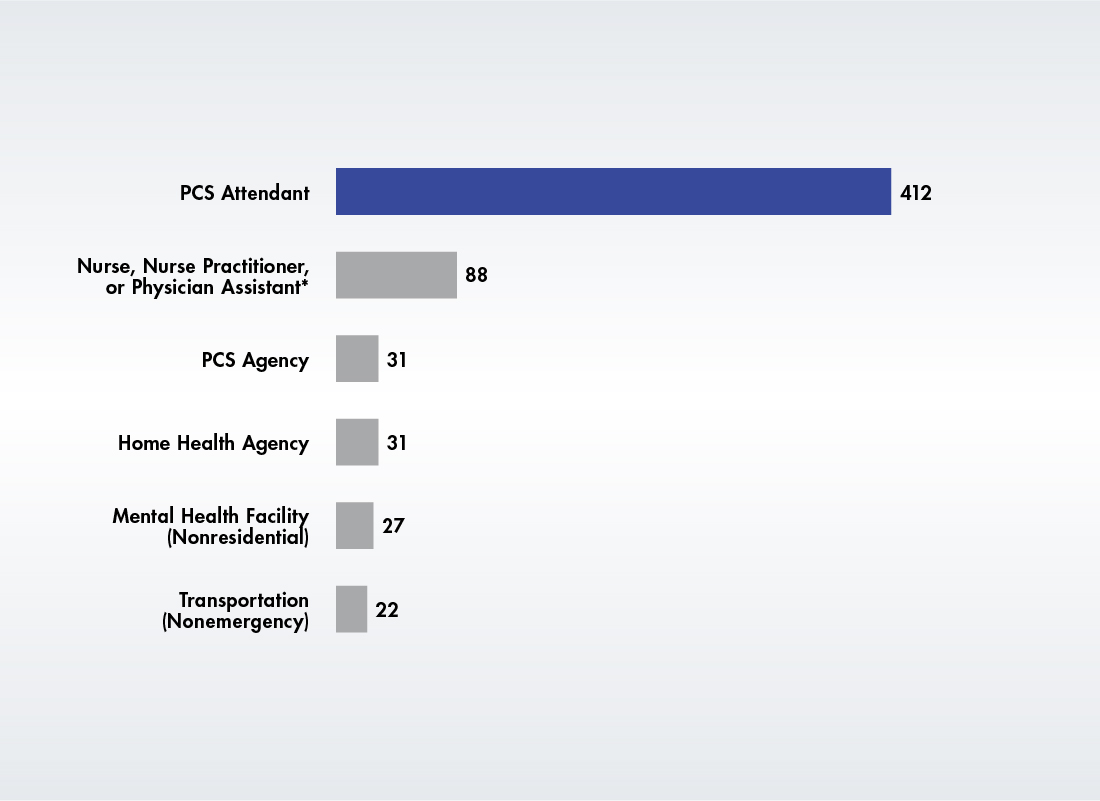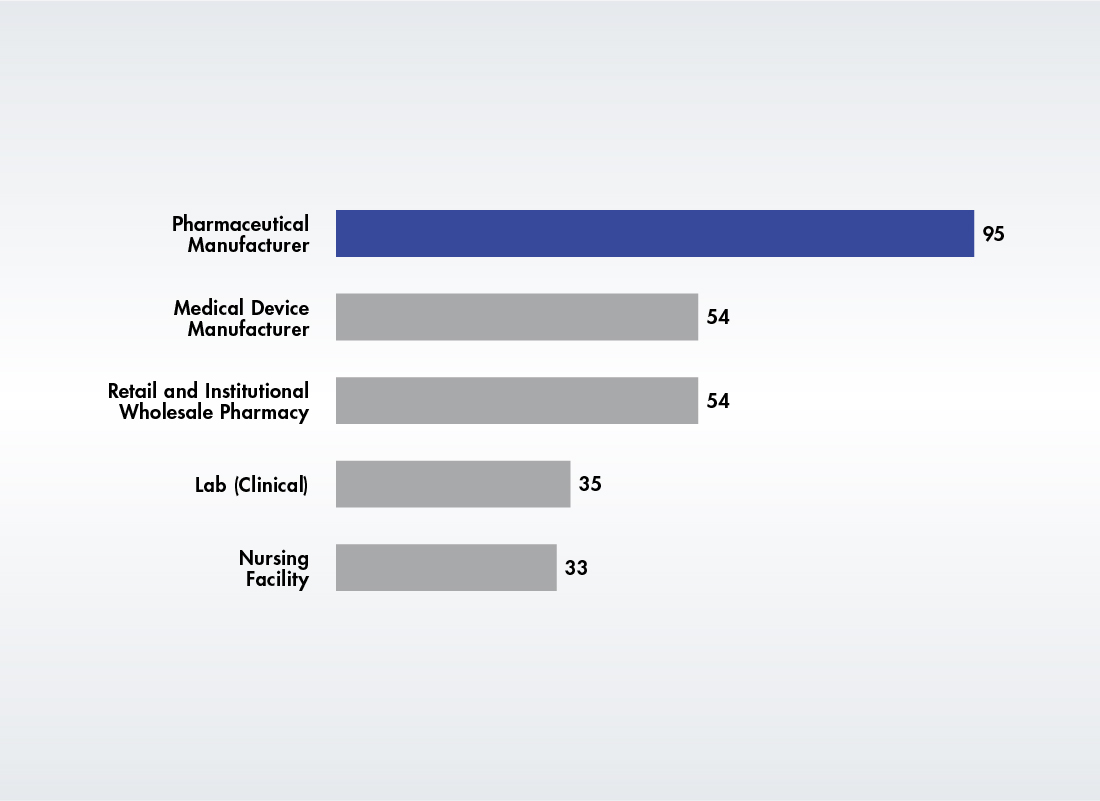Medicaid Fraud Recoveries Drop Significantly in 2022
At $1.1 billion, total recoveries in 2022 did exceed $1 billion for the fourth year in a row, but dropped from $1.7 billion in FY 2021

The 2022 Medicaid recoveries numbers mirror U.S. Department of Justice federal False Claims Act enforcement patterns (see the related story).1 The key takeaway is that recovery totals are in sharp decline even though the volume of actions remains fairly consistent year over year. At $1.1 billion, total recoveries in 2022 did exceed $1 billion for the fourth year in a row, but dropped from $1.7 billion in fiscal year (FY) 2021. Here’s a look at the U.S. Department of Health and Human Services Office of Inspector General’s (OIG’s) newly published Medicaid Fraud Control Units Annual Report for FY 2022 and what it tells us about the current state of healthcare fraud enforcement at the state level.2
MFCUs & the War on Medicaid Fraud
The new report is based on enforcement data provided to the OIG by Medicaid Fraud Control Units (MFCUs), or agencies that are jointly funded by the federal and state governments to investigate and prosecute Medicaid provider fraud and patient abuse or neglect within a particular state. There are 53 MFCUs operating in all 50 states, the District of Columbia, Puerto Rico, and the US Virgin Islands. The OIG oversees and provides technical assistance to the MFCUs.
MFCU fraud and abuse cases typically begin as referrals either from external sources or internally via data mining. External referrals are reviewed by MFCU staff to determine whether the agency should pursue criminal prosecution or civil action. Each year the MFCU submits a report to the OIG summarizing the convictions, settlements, judgments, and monetary recoveries over the past 12 months. The OIG then assembles all the MFCU reports into a single volume summarizing Medicaid enforcement action for the year.
Medicaid Criminal Enforcement in 2022
After dropping to a five-year low of 1,017 in the first pandemic year of 2020, MFCU case convictions grew to 1,105 in 2021. While the rebound continued in 2022 with 1,327 convictions, that’s still below the prepandemic total of 1,527 in 2019. As usual, fraud convictions outnumbered patient abuse and neglect convictions by roughly three to one (946 vs 381).
MFCU Convictions, FY 2018 to FY 2022

At 171, the number of MFCU convictions related to drug diversion increased for the third year in a row. By provider type, personal care service attendants accounted for the most fraud convictions by far at 44 percent.
2022 MFCU Convictions by Type of Provider Convicted

In addition to jail, fines, and other criminal penalties, Medicaid fraud and abuse convictions can also get a provider excluded from federal healthcare programs. At least 44 percent of the 2,332 exclusions that the OIG imposed in FY 2022 came from MFCU cases.
In terms of money, MFCUs recovered $416 million in criminal cases in 2022, less than half of the $857 million recovered in 2021, but still well above 2020 and prepandemic totals.
Medicaid Criminal Recoveries, FY 2018 to FY 2022
| Fiscal Year | MFCU Criminal Recoveries |
| 2018 | $314 million |
| 2019 | $305 million |
| 2020 | $173 million |
| 2021 | $857 million |
| 2022 | $416 million |
Medicaid Civil Enforcement in 2022
While criminal convictions rose, civil settlements and judgments in 2022 fell from 716 to 553 and remain on a long-term downward trajectory.
MFCU Civil Settlements & Judgments, FY 2018 to FY 2022
| Fiscal Year | Civil Settlements & Judgments |
| 2018 | 810 |
| 2019 | 658 |
| 2020 | 786 |
| 2021 | 716 |
| 2022 | 553 |
Continuing recent patterns, pharmaceutical manufacturers were involved in more civil judgments and settlements than any other kind of provider with 95 cases, followed by medical device manufacturers and pharmacies with 54 each.
2022 MFCU Settlements & Judgments by Type of Provider Involved

As on the criminal side, civil recovery totals were down sharply, dropping from $826 million in 2021 to $641 million. The decrease is attributable not so much to volume but the scope of civil cases, specifically the shift away from large global cases in which the National Association of Medicaid Fraud Control Units coordinates joint federal and state investigations. These cases bring in much more money than the nonglobal cases undertaken by individual MFCUs. In FY 2022, 62 percent of all MFCU civil recoveries stemmed from such nonglobal cases. By contrast, in 2021 and 2020, global cases accounted for 54 percent and 74 percent, respectively, of all civil recoveries.
Medicaid Civil Recoveries, FY 2018 to FY 2022
| Fiscal Year | MFCU Criminal Recoveries |
| 2018 | $545 million |
| 2019 | $1.6 billion |
| 2020 | $855 million |
| 2021 | $826 million |
| 2022 | $641 million |
What Do the Numbers Mean for the Future?
Even though recovery numbers are way down, Medicaid fraud fighting remains a highly profitable venture. With $1.1 billion recovered by MFCUs in FY 2022, the federal and state governments achieved a return on investment (ROI) of $3.08 for every $1 spent. You can bet that a venture with such a robust ROI isn’t going to disappear any time soon. In fact, strong MFCU enforcement activity and the protection of Medicaid program activity would be a public policy imperative even if it was a money-losing proposition.
References:
Subscribe to view Essential
Start a Free Trial for immediate access to this article